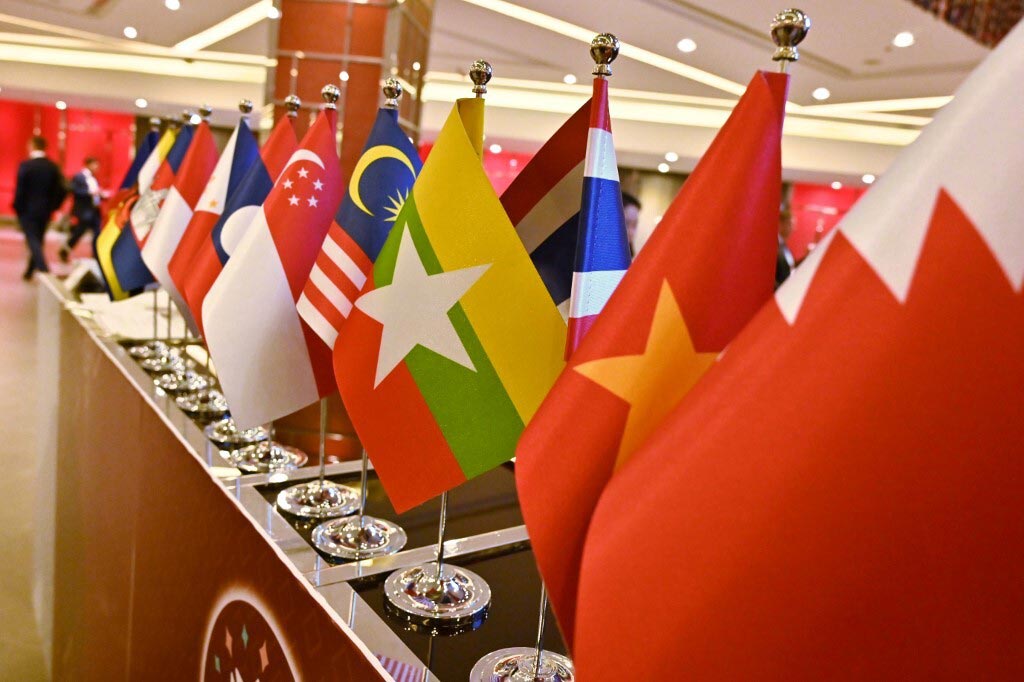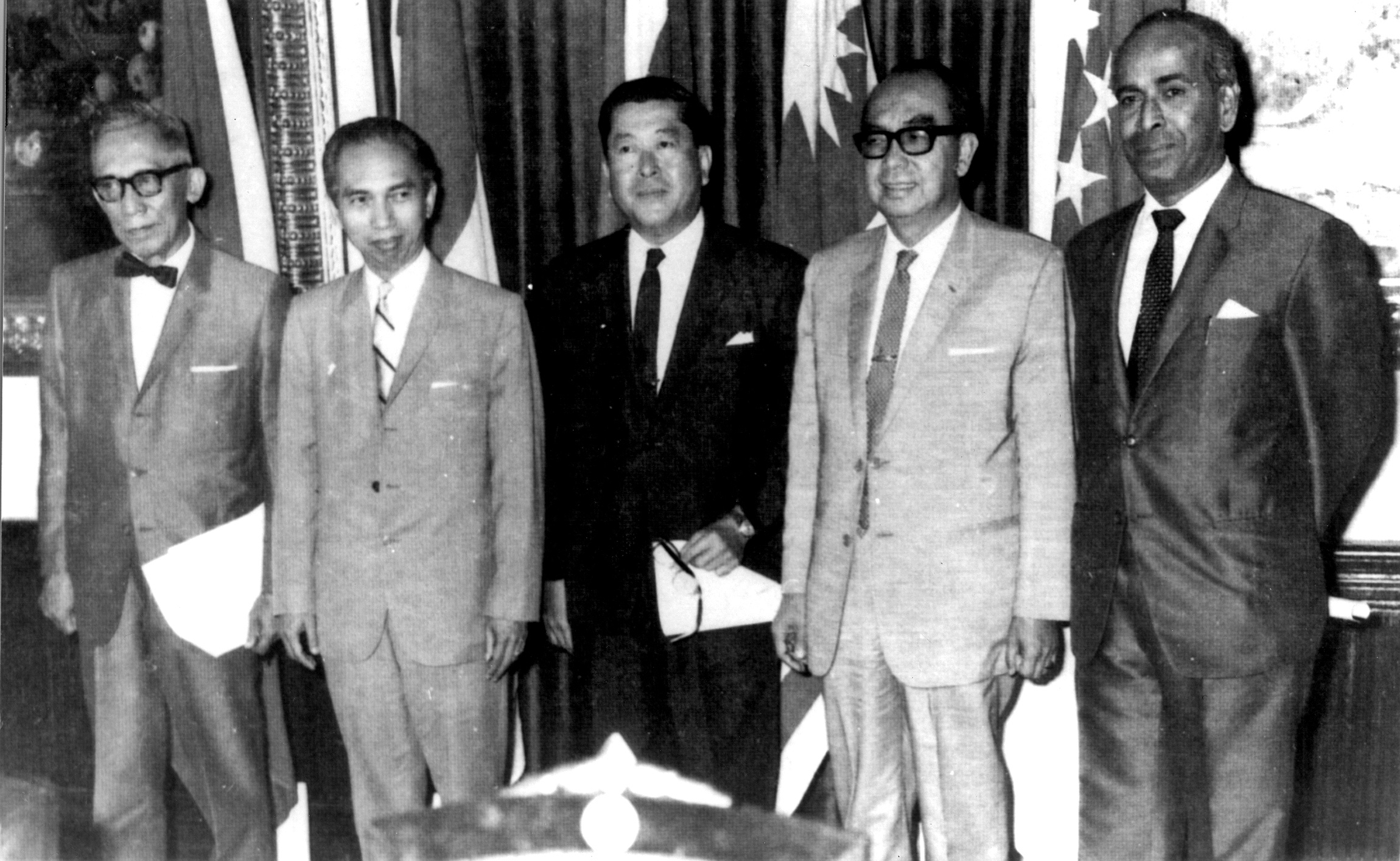This opinion piece has been written on behalf of Pacific Forum by members of their Young Leaders Program, and published in partnership with Southeast Asia Globe as part of a weekly series looking at geopolitical issues impacting the Asia-Pacific.
Over the past few decades, ASEAN has developed from being a platform primarily designed to discuss regional political and security cooperation, to a regional bloc with a greater focus on economic and social integration. But as global disruptive forces emerge, there is a growing realisation among ASEAN member states that there is a need for even closer cooperation and unity to counter new and uncertain challenges.
In the modern era, traditional and non-traditional security issues like maritime security, climate change, natural disasters, food security, drug trafficking, women and child trafficking and international terrorism have caused serious damage to the national security and socio-economic development of ASEAN members. Member states understand that these issues have become transboundary and requires all of them to maintain some form of collective unity and action to resolve.
In economic terms, also, cooperation is key for ASEAN’s diverse member states.
When individual member states stand alone and compete intra-regionally, they are unlikely to reach the level of economic clout the regional bloc can achieve collectively. ASEAN states together, after all, form the fifth largest economy in the world. It is also in the bloc’s diversity and complimentary aspects where strength can be found, tapping into the comparative advantage of each member state to remain competitive in the global economy. Brunei’s crude oil and natural gas exports for example, or Singapore’s global finance centre, and Vietnam’s highly skilled but low-cost labour force.
Both these economic and security issues are all understood realities. Hence, at the eleventh ASEAN Summit in December 2005, the region’s leaders went on to adopt the motto of “One Vision, One Identity, One Community”, which signalled their aspirations of building a true ASEAN community that is well-connected politically, economically and socially.
However, actions by ASEAN member states that seemingly act in contradiction to the fulfilment of such goals are aplenty, as they remain heavily dependent on external major global powers for their security and economic prosperity. This heavy dependence on major powers could lead to divisions in the bloc due to self-interest and it could go against the ASEAN community’s goal of being “politically cohesive, economically integrated, and socially responsible”.
A pertinent case is China’s growing economic influence in the region. Within the past few decades, China has managed to position itself as the region’s main trading partner and a major source of foreign direct investment (FDI) for a number of countries in the region such as Myanmar, Laos, and Cambodia. The latter two, in particular, are two major beneficiaries of China’s strategy in cultivating closer economic and diplomatic relationships with ASEAN member states.
To date, China has lent the Laotian government about $7.2 billion and FDI in Laos by China has risen by more than 200% since 2006. In the case of Cambodia, the massive amount of debt owed to China – as of 2019, Cambodia’s bilateral public debt stood at a staggering $3.4 billion – has further resulted in its political subservience to Beijing.

This results in member states remaining anxious to sustain close ties with China to continue receiving the numerous financial benefits provided by its government. Therefore, it comes as no surprise that a number of the ASEAN member states have largely supported Chinese developmental plans in the region and even aligned itself with China at the expense of ASEAN unity, such as in the case of the South China Sea issue.
The inability of the 2012 ASEAN Summit in Cambodia to draft a joint statement regarding China and the South China Sea dispute is a prime example of how China’s influence has affected the bloc’s unity. ASEAN has remained largely ineffective in mobilising concerted efforts on this issue, especially when it may not have implications on all member states.
There are five ASEAN Member States – including Brunei, Philippines, Malaysia, Indonesia and Vietnam – claiming sovereignty on the South China Sea. That raises the question as to whether only the littoral states with sovereignty claims in the South China Sea should be concerned about this issue, or whether ASEAN as a whole should have a more proactive response to this?
The impact of national development projects in the Mekong basin have often impinged on other states’ interest and contributed to intra-regional tensions which hinder solidarity
What has been witnessed so far is a lack of “ASEAN consciousness” in the political leaders and bureaucrats of ASEAN member states. They have been conditioned to act in a manner that is predominated by national interests and identities; not only a result of a mindset inherited from colonial rule, but also the mistrust that was created post-independence due to differing political pathways and geopolitical alignment each state chose to take.
Note: Post-independence Southeast Asia was divided into opposing blocs, the communist vs the non-communist. ASEAN was in fact created as a front against the spread of communism in the region. Indonesia had also opposed the formation of Malaysia, leading to a conflict known as Konfrontasi.
The issue of the Mekong river illustrates this point. All the downstream riparian countries (DRC) harbour designs over the Mekong River and wish to tap its water resources as part of their economic development strategy. Laos desires to utilise the hydropower potential of the Mekong to generate electricity for export, Cambodia wishes to secure a sustainable supply for its fishery industries, Vietnam is concerned about maintaining the flow of water for its rice production and Thailand wants its water resources for its cities’ consumption.
Many of these efforts are carried out without due consideration of the overall health of the Mekong River and the resultant consequences of all member states. The impact of their own national development projects in the Mekong basin have often impinged on other states’ interest and contributed to intra-regional tensions which hinder the formation of regional solidarity.

Here we may consider the case of the Don Sahong hydropower project which the Laos government proceeded ahead with despite the unhappiness of downstream states such Thailand, Cambodia and Vietnam for the project’s potential disruption to Mekong’s water flow and fish migration pattern.
Since ASEAN is a community, the member states should sit down and work together on problems that impact the region, no matter its relevance to their nation. The ASEAN community is only strong when member states believe in each other and are well-linked, and all member states should be invested in figuring out possible collective solutions. Member states need to remind themselves that the ASEAN community is only strong and credible when member states believe in each other and can speak as a collective voice.
One way to foster greater unity is to promote the rule of law that encourages member states to take international law and see where they can cooperate. For instance, Malaysia and Vietnam have overlapping claims on 2,800 square kilometres over the continental shelf in the Gulf of Thailand. Both countries used the United Nations Convention on the Law of the Sea, however, to come to an agreement in 1997 on exploiting the natural gas present in the disputed area pending until a resolution is made over its sovereignty. Due to its success, this MoU was later expanded until 2027.
The confidence shown by Vietnam and Malaysia to build peace by themselves and promote internal cooperation based on international law is a positive indication for ASEAN members to work closely together and effectively cooperate for their community.
Emerging as an important role in Asia, ASEAN has received considerable attention from the world, especially major powers. China tries to build good relations with ASEAN through economic investment, while the US has also invested considerably by cooperating with ASEAN on cyber security, maritime security, natural disasters and international terrorism. Japan has also established a presence in Southeast Asia through overseas development aid, assisting in technological development, building infrastructure and helping in natural disaster response.
However, as ASEAN tries to take advantage of the new geopolitical competition for regional benefits, it is walking on eggshells to avoid appearing to be taking sides. If member states start to do so, it can only result in divisions emerging and a reversion in the region back to pre-ASEAN days.
ASEAN needs to become a more united regional bloc through not just words but also actions. Without unity, ASEAN will risk being undermined in an increasingly volatile, uncertain and complex geopolitical environment. This will not bode well for a region whose future is increasingly dependent on genuine collaboration among its member states.
When the unity holds, the ASEAN can benefit and play an effective central role in managing the major power rivalry in Southeast Asia.
Thi Mong Tuyen Tran is a postgraduate alumina of Department of Politics and International Relations, University of Westminster and a member of Young Leaders Program of Pacific Forum. Her research interests are maritime security, the US and Japan policy towards ASEAN, the EU and ASEAN integration.
Lee Jun Jie is a postgraduate alumnus of Singapore’s S. Rajaratnam School of International Studies, Nanyang Technological University and a member of the Young Leaders Program of Pacific Forum. His research interests are international relations and the politics of Southeast Asia, as well as issues posed by separatism and transnational terrorism in the region.
All views, thoughts, and opinions expressed in this article belong solely to the authors, and do not reflect the views or official positions of the author’s employer, organisation, committee or other group or individual.



